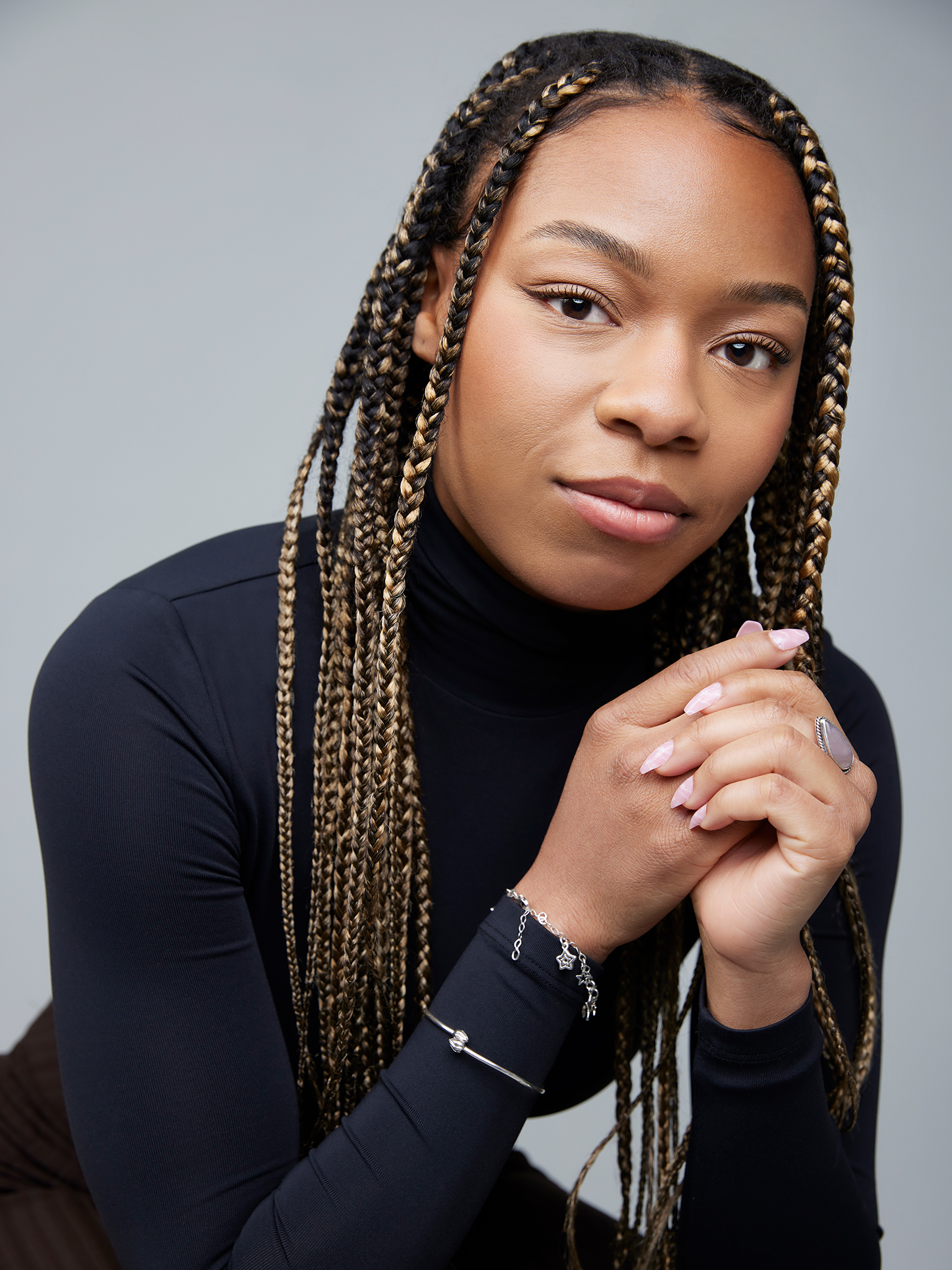View
Opening Doors
by Neil Armstrong
photography by Mike Ford
The connections that Nichol Edwards Snagg (BA ’22) made through a pilot project offering Black students from the Faculty of Health paid placements in health-related fields led directly to her new career.
A week after graduating from York University as a psychology major, she was employed as a peer support worker at the Centre for Addiction and Mental Health (CAMH) in Toronto. Now, she runs group programming with a team of interdisciplinary staff including therapists, psychologists and other peer support workers offering a range of services for in-patients. Soon, she will be moving into a knowledge-translation role where she will be working with scientists, researchers, conferences and the public.
Edwards Snagg attributes these developments in her life to Work Integrated Learning for Black Students in Health, a York initiative funded by a Co-operative Education Work-Integrated Learning (CEWIL) Canada iHub grant. The pilot project started with the advocacy from two student-led groups – Black Students in Psychology Association and Black Students Mentorship Program – to provide more real-world experiences for Black students who have been historically under-represented in health-related professions and academia.
Since then, it has expanded from 12 psychology students gaining work experience over July and August, to 18 students from across the Faculty of Health (psychology, global health and kinesiology) in 2023.
“Without this program, I don’t think I would have been able to feel more confident to apply to a job like the one I have now,” Edwards Snagg says.
A collaboration between the Department of Psychology and the experiential education team in the Faculty of Health, led by Anda Petro, the initiative helps students gain experience in their field of interest and develop knowledge and skills to support their academic and professional journeys. It is uniquely positioned to address notable gaps in representation among Black professionals in the health sector – a vision that is shared by the placement organizations.

“These future leaders will be poised to improve research and service delivery for Black communities overall,” says Monique Herbert, a professor in York’s Faculty of Health and the program’s academic lead.
Herbert also helped to build a support team of experiential education coordinators and faculty advisers to assist students to develop a learning plan for their work placements along with projected outcomes.
Students, who spend 100 hours in their placements, are encouraged to reflect on the experience at the beginning and end of the placement, and create a poster to show the academic team the trajectory of their experiential learning journey.
Orientation sessions focus on being in the workplace for the first time, what it’s like to be Black in a corporate space and how to integrate as students into the workforce.
“Throughout the experience, we had check-in points with our supervisor at our placement and then our York academic supervisor would review the feedback, asking questions to get us to connect with them even further,” says Edwards, adding that she got to meet “amazing York staff dedicated to making sure there is more diversity in the health field.”
“That kind of synergy of the academic and the experiential is cool because students – some of them for the first time – had one-on-one time with their professor, which was huge for them,” Herbert observes. “A lot of their feedback was around the connections they had with their faculty adviser and the connections they had with supervisors on-site.”
Because students had the “ideal experience” of doing a degree and seeing how that can apply in the real world, Herbert believes it built students’ self-confidence. “They were involved at every step of the process.”
Edwards Snagg’s supervisors ended up being references for her CAMH job, where she now applies many of the skills that she cultivated in the program whose community partners include Sunnybrook Health Sciences, Generation Chosen, Baycrest Health Sciences, and MAP Centre for Urban Health Solutions.
Two more health-care providers joined at the start of the current academic year – Reconnect Community Health Services and Humber River Hospital. Also enhancing the current program are student mentors from the first cohort, plus more culturally relevant training. Says Herbert, “It’s a win-win situation.” ■